TIMS Lab
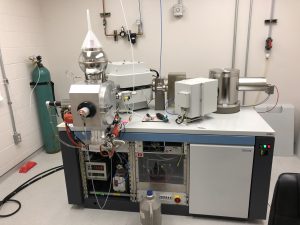
The Department of Geological Sciences has a Thermo Scientific Triton thermal ionization mass spectrometer that is capable of operating in both positive and negative ion mode. The Triton incorporates Virtual Amplifiers(TM), Dynamic Zoom(TM) and all-carbon plug-in Faraday cups. The Triton is capable of precise measurement of Ca, Sm-Nd, Rb-Sr, Re, Pb, U, Th (and more) isotope ratios in positive ion mode, and Os isotope ratios in negative ion mode. The Triton is equipped with 9 Faraday collectors which can be used with a combination of 1010, 1011 and 1012 Ohm amplifiers, as well an axial discrete dynode secondary electron multiplier for ion counting measurements. The mass spectrometer also features an oxygen-bleed valve for the measurement of small Nd and Os samples.
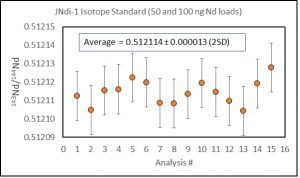
Analyses of isotope standard JNdi-1 in 2019 by the TIMS at UT Austin. Our measured value is in good agreement with the original published ratios from Tanaka et al., (2000) as well as data published by other labs.
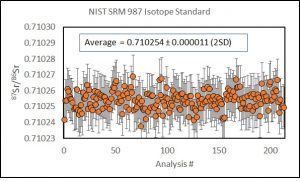
Analyses of isotope standard NIST SRM 987 in 2019 by the TIMS at UT Austin. Our measured value is in good agreement with the canonical ratio of 0.710248.
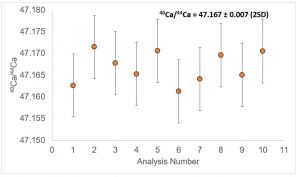
Unspiked isotope standard NIST 915a analyzed in 2022 by the TIMS at UT Austin.
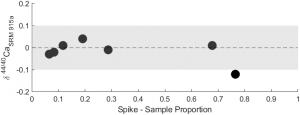
Isotope standard NIST 915a spiked with an enriched tracer of 42Ca-48Ca and analyzed in 2022 by the TIMS at UT Austin. The external 2SD (n=7) is 0.1‰. The double-spike inversion follows that of Rudge et al., (2009), “The double spike toolbox”.
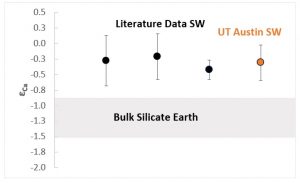
Epsilon 40 measured on the IAPSO seawater standard at UT-Austin relative to SRM 915a compared to literature data compiled by Antonelli et al., (2021; ACS Earth Space Chem). SW = seawater.
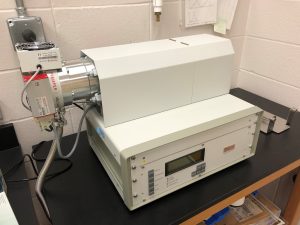
The TIMS lab is equipped with a Thermo Scientific filament bakeout device where up to 30 filaments can be out-gassed at a time.
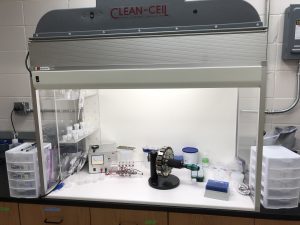
Samples are loaded onto metal filaments in a HEPA filtered laminar flow bench.

